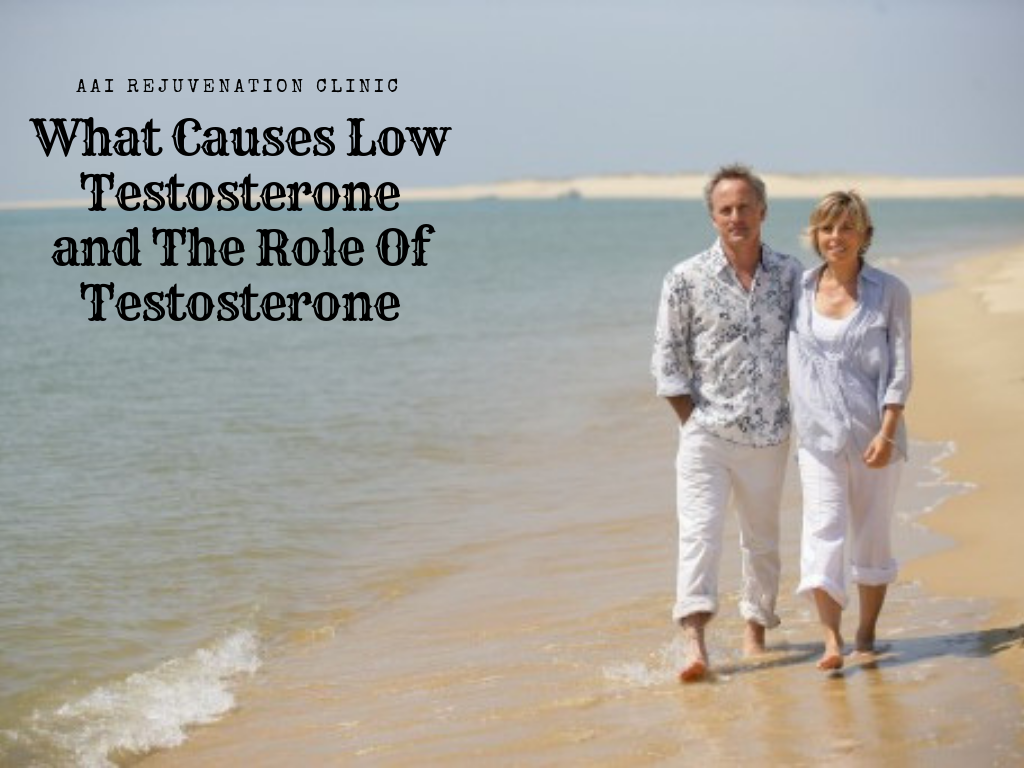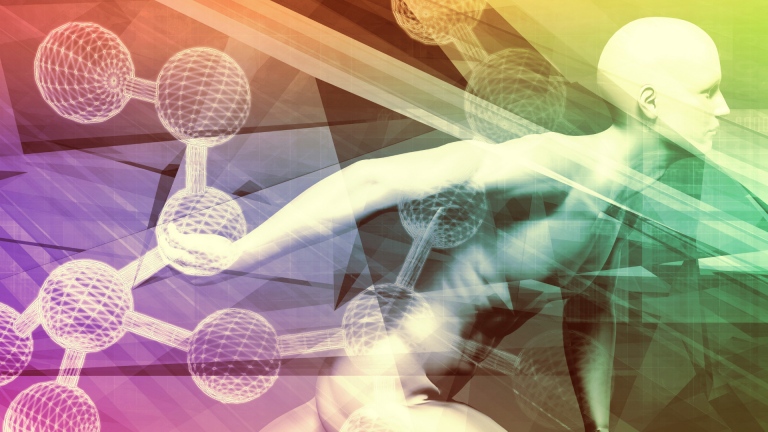What Causes Low Testosterone
What is the role of Testosterone?
Causes Low Testosterone is the most critical hormone in men. Low Testosterone (hypogonadism) can cause and is responsible for the male characteristics & helps maintain our sex drive, sperm production, body hair, bone, and muscle.
What’re the other causes of low Testosterone?
(e.g., trauma, castration, radiation, or chemotherapy), hormonal disorders like (pituitary tumors or diseases, high levels of prolactin), or other disorders like (chronic liver and kidney disease, HIV/AIDS, too much body fat, and type 2 diabetes and associated obesity).
How is low Testosterone diagnosed and tested?
Your doctor will use blood tests to see if the total testosterone level is within the normal range. It will be 300 to 1,000 ng/dL, but this may differ depending on the laboratory and the physical exam. To diagnose low Testosterone, you may need more than one early-morning (7 AM — 10 AM) blood test and, sometimes, other analyses of the pituitary gland.
How is low Testosterone treated?
There are several methods of testosterone replacement; Testosterone Injections are the best meted to get the full benefits of the therapy: • Injections • Patches • Gel • Pellets. The best method will depend on the cause of the problem, the patient’s preference and tolerance, and the cost.
What should you do with this information?
If you have symptoms, talk with one of our hormone experts, who can help determine the causes. Be open with our doctor about your medical history, all prescription and nonprescription drugs, any sexual problems, and any significant changes in your life.
Many lifestyle choices and decisions can also negatively impact our natural testosterone production.
Including:
- Injury to the body. Any physical or psychological trauma can significantly hinder the natural production of Testosterone in men.
- You are getting married or having children. High Testosterone in men prepares us to find a mate and have a family.
Once those goals have been met, our bodies are programmed to lower testosterone production:
- Depression
- Excessive drug use
- Excessive marijuana use
- Extreme opiate use
- Excessive alcohol consumption
- High-stress levels
- Lack of sleep or good quality sleep
- Low self-esteem
- Negative thoughts
- Unnatural glandular issues
- And much, much more…
Low Hormone Symptoms also will depend on the cause of the problem:
Weight Gain
- Causes Low Testosterone Once we reach age 30, many hormones begin to decline. Our organs’ lean body mass (LBM) decreases, whereas the adipose (or fat) mass decreases. Between the ages of 30 and 75, the liver, kidneys, brain, and pancreas atrophy by an average of 30%. The LBM declines by ~5% in men and 2.5% in women per decade—meanwhile, both sexes’ body fat increases during the same period.
Depression
- Depression impacts all of us at one time or another. It simply isn’t possible to have everything go well all the time.
- Many people may seem lucky and prosperous with the world at their fingertips. Sadly, that surface appearance completely masks the symptoms of low motivation and depression.
- Depression can hit you like a ton of bricks. The stigma associated with being a man with symptoms of depression can be even more demoralizing and add insult to injury. Most men refuse to admit to feelings of depression, let alone confront or deal with the causative issues.
Muscle Mass and Strength
- Once we hit 30, the lean body mass of our organs begins to decrease, whereas the fat mass increases. Between the ages of 40 and 80, slight body mass declines by ~5% per decade in men and 2.5% per decade in women. Meanwhile, at the same time, the body fat in both sexes increases.
These physiological changes are not just an affront to vanity but are a threat to health and longevity:
- Aerobic power is directly connected to the amount of lean body mass.
- This shrinkage of vital organs means they cannot do their jobs as well, whether it be the heart pumping, the muscles lifting, or the kidneys clearing metabolic waste from the blood.
- The risk of heart attack, hypertension, and diabetes with an increased abdominal fat mass.
Fatigue
- We all have busy lives and are constantly on the go. Although most people experience sleep problems at some point in their life, one can usually identify the cause of the temporary tiredness and remedy it quickly with good-quality rest.
- Extreme, long-term fatigue is a different story. You do not know what is causing it, which can gradually destroy your motivation, concentration, and energy levels. Often, the people in your life do not understand how debilitating fatigue can be.
Sleep Disturbances
- Sleep disturbance affects every facet of our existence. Many sleep-related problems can be overcome with testosterone therapy. Men with lower testosterone levels have reduced sleep efficiency, with increased nocturnal awakenings and less slow-wave (REM) sleep. Studies have shown that sleep disturbance caused by sleep apnea, a chronic breathing problem, may be linked to low testosterone levels.
Erectile Dysfunction
- One of the worst aspects of getting older is erectile dysfunction (ED), which causes a reduced ability to perform in the bedroom and lowers your sex drive. One of the leading causes of age-related sexual dysfunction is the changes in your metabolism and hormone levels, including reduced testosterone production. Numerous studies have also linked low GH and IGF-I levels to ED.
Decreased Sex Drive and Desire
- Low Testosterone often leads to a decreased sex drive. Although it is the dominant hormone in men, Testosterone also plays a significant role in women. Contrary to popular belief, low libido is not related to the frequency of sexual activity or the satisfaction achieved. Instead, it is determined by the body’s signal indicating sexual desire. This signal declines with age due to the body’s decreased testosterone production.
Motivation
- Motivation is essential for getting the most out of life; encouragement can make even the most routine task manageable.
- Many people assume if they get a good night’s sleep, they will feel rejuvenated in the morning. When you wake, your head is flooded with thoughts of what you must accomplish during the day, even if you sleep well.
- You might then organize your day, plan your activities, and create a map of the tasks you need to accomplish for a productive day. However, if you lack motivation, all the preparation in the world will not help you execute your plan for a productive day.
High Cholesterol
- Undetected and untreated high Cholesterol is a silent killer! High Cholesterol can lead to various health problems, including heart attack, stroke, and death. Although high Cholesterol is associated with overweight individuals, you can be thin and still have high Cholesterol.
- GH is an essential regulator of LDL, total Cholesterol, and triglycerides. It lowers diastolic blood pressure by reducing the resistance of arteries and capillaries that carry blood throughout the body. Multiple studies have shown that GH can reduce LDL or harmful cholesterol levels.
Low Energy
- Many symptoms of aging are a direct or indirect result of diminishing GH and testosterone levels, including low energy and fatigue. By 30, most people are GH-deficient, which can result in somatotropin deficiency syndrome (SDS). Somatotropin is another name for GH. Without GH therapy, GH levels continue to decline, which is sometimes referred to as somatopause.
Memory Loss
- Hopefully, you have been skimming through the many pages of our website to educate yourself about how to take charge of your life, maximize your potential, and experience life to the fullest. The only way you will ever be able to do this is if you are feeling your best, can produce your best, and give your best!
Osteoporosis and Bone Mass
- Osteoporosis is the gradual thinning that makes bones brittle and porous, making them more prone to fracture. It affects approximately 10 million adults in the United States and is more common in women than men. Of people older than 50, one in two women and one in eight men are predicted to have an osteoporosis-related fracture in their lifetime. Individuals of Caucasian and Asian ethnicity are also at high risk.
Wound Healing
- Think about your children or yourself when you were a child. Do you remember how many times you fell and scraped your knee? Your arms and legs always seemed to be wearing red badges of courage. Then, a scab would form and soon disappear, leaving no trace of the injury. However, when you are young, your cells regenerate and repair much faster, so your wounds heal more quickly, and your bones knit more rapidly.
- All these processes are under the control of GH and other growth factors. Although GH supplementation won’t restore your healing capacity to that you experienced as a child, it will dramatically accelerate the healing process.
Thyroid
- The thyroid and adrenal glands regulate multiple functions throughout the body. If thyroid hormone and cortisol levels are incorrect, the rest of the body will not function correctly; these critical hormones are just as important as estrogen, progesterone, Testosterone, and growth hormone.
Testosterone Injections are the most common treatment for men going through andropause.
This therapy may provide help and relief from the symptoms and help improve the quality of life in many cases. Lifestyle changes such as increased exercise, stress reduction, and proper nutrition also help. Testosterone therapy is available in different forms; ask your doctor. He will help determine which treatment is best for you.
TESTOSTERONE INJECTIONS: This treatment causes low Testosterone and involves doses of bioidentical (Testosterone Cypionate, Testosterone Enanthate, and Testosterone Propionate).
TESTOSTERONE PATCHES: People who wear a piece containing Testosterone receive the hormone through the skin. The patches allow a slow, steady release of Testosterone into the bloodstream.
TESTOSTERONE GEL: This treatment is also applied directly to the skin, usually on the arms. Because the gel may transfer to other individuals through skin contact, a person must wash the gel from the hands after each application.
TESTOSTERONE CAPSULES: This is yet another option for testosterone replacement. Men with liver disease, poor liver function, severe heart or kidney disease, or too much calcium in their blood should avoid testosterone capsules.
**NOTE** The content in this blog is subject to interpretation and is the opinion of the content writer. We do not claim it to be fact. We encourage you to consult a medical doctor before taking any prescribed medications or supplements.
Conclusion
Supporting Hormones health is essential for overall well-being and vitality. By incorporating regular exercise, proper nutrition, adequate sleep, stress management techniques, and IV therapy, you can help maintain optimal testosterone levels and lead a healthy, balanced life. Always consult a healthcare professional before making significant changes to your lifestyle or starting any new treatments to ensure they suit your needs.
At AAI Rejuvenation Clinic, we advise anyone to think seriously about beginning Hormone treatment if there is no medical need for it. However, we will take every precaution to ensure that you read your program’s positive benefits by providing the latest at-home hormonal mouth-swab testing to ensure we are continually monitoring your progress and aware of any adverse side effects. Fill out the Medical History Form, or if you need more information, call us at (866) 224-5698 or (866) AAI-Low-T.
Low Hormone Symptoms
- Motivation
- Sex Drive and Desire
- Depression
- Fatigue
- Erectile Dysfunction
- Cholesterol
- Low Energy
- Memory Loss
- Osteoporosis
- Wounds & Illness
- Muscle Mass
- Sleep Disturbances
- Thyroid Dysfunction
- Weight Gain
]]>





